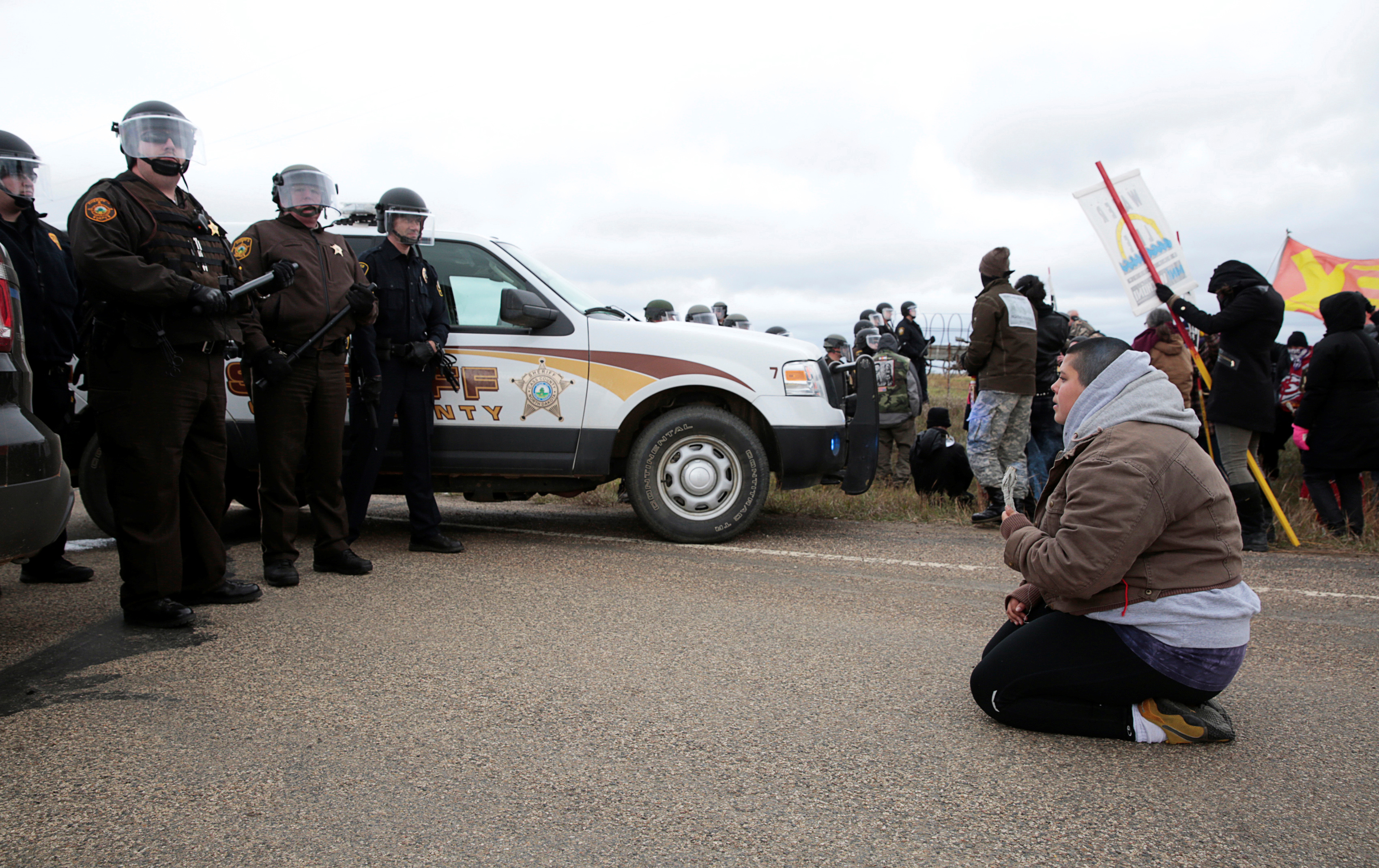Protesters of the Dakota Access oil pipeline were marked with numbers and held in dog kennels without bedding or furniture after being arrested on October 27, Native American activists told the Los Angeles Times last week.
During the protest last Thursday, 141 people were arrested after law enforcement officials in riot gear fired pepper spray and “sound cannon” blasts at activists, the Times said.
The Morton County Sheriff’s Department has said that protesters threw “rocks, logs, bottles, and other debris at officers.” Authorities claim that one protester shot at deputies as she was being arrested, which activists deny.
“We were caged in dog kennels, sat on the floor, and we were marked with numbers,” Floris White Bull, a protester, said in an emotional video posted to YouTube last week. White Bull described the experience of watching Native American elders being violently arrested as “traumatic.”
"I couldn't wrap my mind around the fact that this was something happening today. This isn't something we're reading about in history books," she added.
Other protesters echoed White Bull's statements on Twitter.
All of the arrested protesters have been released on bail after an anonymous donor gave $2.5 million to the cause, News on 6 reported on Sunday.
The Dakota Access pipeline, a $3.7 billion project, would stretch 1,172 miles from North Dakota to Illinois. Supporters claim that it will help significantly boost economic growth and activity.
The pipeline's construction has been hampered by recurring protests over the last year, often leading to violent clashes between police and demonstrators.
The Standing Rock Sioux Tribe, among others, has attempted to block the project because it passes through North Dakota's Lake Oahe, a sacred site and a major water source for the Standing Rock Sioux. The pipeline also passes through another major reservation.

The Standing Rock Sioux Tribe has said that the pipeline threatens tribe members' "economic and environmental well-being," according to CNN.
The tribe's chairman, Dave Archambault II, condemned the actions of law enforcement officials during Thursday's protests, saying on Saturday that "[i]t's wrong to use that kind of force on our people."
Archambault also said he is considering taking legal action in the form of a class action lawsuit against officers for their use of force.
Pipeline construction has since resumed at the site of Thursday's protest. Approximately a mile away, activists at the main protest camp, the Oceti Sakowin camp, have begun protesting again as well.

